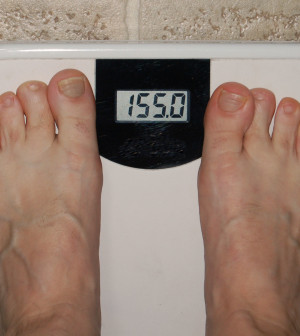- The Best Time of Day to Drink Bone Broth to Maximize Health Benefits
- 8 Ways to Increase Dopamine Naturally
- 7 Best Breads for Maintaining Stable Blood Sugar
- Gelatin vs. Collagen: Which is Best for Skin, Nails, and Joints?
- The Long-Term Effects of Daily Turmeric Supplements on Liver Health
- Could Your Grocery Store Meat Be Causing Recurring UTIs?
- Are You Making This Expensive Thermostat Error This Winter?
- Recognizing the Signs of Hypothyroidism
- 10 Strategies to Overcome Insomnia
- Could Artificial Sweeteners Be Aging the Brain Faster?
More Muscle May Help Kidney Dialysis Patients


For kidney dialysis patients, having more muscle improves their ability to walk and benefits their physical and mental health, according to a new study.
It included 105 hemodialysis patients who were assessed for body-mass index or BMI (an estimate of body fat based on height and weight), waist size, mid-thigh muscle and abdominal fat. They were also tested to see how far they could walk in six minutes and completed questionnaires to assess their physical and mental health.
Patients with a higher BMI, large waist size and more abdominal fat did worse on the walking test. Those with more mid-thigh muscle — an indicator of higher muscle mass — had longer six-minute walking distances and better physical and mental health scores, according to the study. It was published online April 24 in the Clinical Journal of the American Society of Nephrology.
“Because this study shows that higher muscle mass is associated with better physical function and quality of life in dialysis patients, interventions such as increased physical activity that decrease fat mass and increase muscle mass are likely to improve physical function, quality of life and survival in dialysis patients,” study author Dr. Srinivasan Beddhu, of the University of Utah, said in a journal news release.
“Such interventions need to be tested in clinical trials,” Beddhu added.
The study only found an association between muscle mass and improved physical function for dialysis patients. It didn’t prove cause and effect.
The findings on body composition may help explain what’s known as the “obesity paradox,” an observation that obese dialysis patients sometimes live longer than normal-weight patients, he suggested.
“The obesity paradox has been interpreted in earlier studies as fat is good. Some have even argued that weight loss should be discouraged in dialysis patients. But the situation is more nuanced,” Beddhu said.
More information
The U.S. National Institute of Diabetes and Digestive and Kidney Diseases has more about hemodialysis.
Source: HealthDay
Copyright © 2026 HealthDay. All rights reserved.










